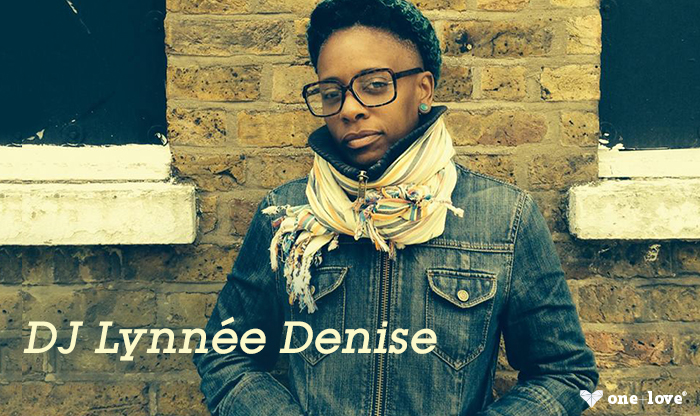
Lynnée Denise, DJ Scholar
What are some of your secret and not-so-secret superpowers?
Secret superpower: I am a beast at discovering the best farmers markets anywhere in the world. I have the secret superpower of becoming a local wherever I land on the planet. I have the not-so-secret superpower of moving people to love deeply (themselves and others) with my touch as a selector.
What are you up to in Amsterdam? How is being there affecting your imagining/inventing self?
I came to Amsterdam to spend some time thinking about my next life move and about who I’ve been up until this point. While I’ve achieved things I have never dreamed of, as I enter this fourth decade in life I would like to shift into a space that allows me to bring all of my passions into conversation with each other in a new way. This could mean anything from opening up a small plate café that specializes in organic and quality food, vintage books, classic films, and mind-blowing music, or pursuing a PhD and spending the rest of my life teaching what I call “DJ Scholarship.” The term suggests that DJ culture is a legitimate form of academic research. DJs develop research skills from diggin’ through the crates, uncovering original songs that have been sampled, managing extensive amounts of information — like an archivist if you will. Not to mention studying the visual legacy of album covers. From there and beyond the common practice of DJing in the clubs, we compile and mix music to demonstrate anything from the interconnectedness of genres to the migration of a people.
My stay here has helped me develop a certain kind of confidence in being a human being. Being a black woman in Europe also allows me a certain kind of anonymity or chosen invisibility. I am not known here for the work I do — only the kind of human being I show up as. So being able to invent a new self who can exist and function at capacity requires a certain kind of humility. I am at the mercy of my personal history and experiences and my approach to humanity. I can’t rely on my racialized American experience to understand the world and although white supremacy is a global phenomenon — born in Europe no less — I am left with needing to find the tools to experience life both within and outside of an American context.
Describe your DJ sound and style for aliens just landed on Earth.
What you hear blasting out of the speakers into your eardrums is a blend of music known as Electro-Speculative-Roots-Funk-Rock-Rhyme-Soul-Jazz-House.
What would you want to say to Black queer ancestors, gone and coming? Former and future? (Of course, Afrofuturism suggests all moments are now.)
I would like to tell the black queer ancestors who lost their lives to HIV/AIDs and/or drug addiction during the 1980s that I am committing my life (in some shape or form), to telling the story of how they created house music and the culture that surrounds it. And that I want to find the resources necessary to reveal, discover, and retell the story of house music and its true black queer origins. I will make sure the people call y’alls name.
What do you wish someone would ask you about?
I want someone to ask me if being a DJ informs who I am with a lover or in bed. The answer is yes. There are times when I cannot have sex because I’m so focused on listening to music and my relationship with music shares space with my sexual core. House music in particular offers a pulse that feels erotic and penetrating. In bed, my lady responds to my touch the same way the dance floor responds to the blending of my songs — hands in the air, eyes closed, release.

Recent Comments